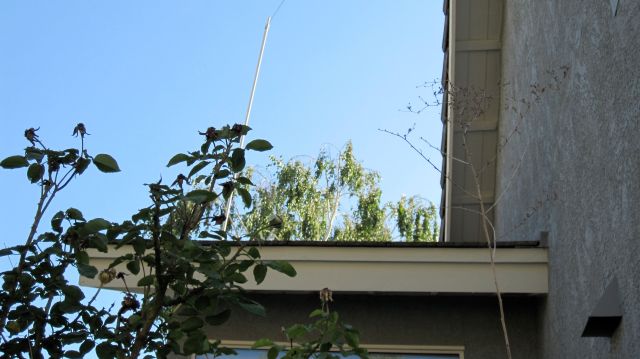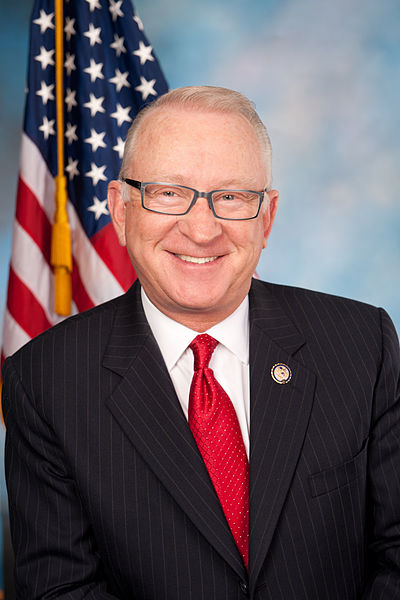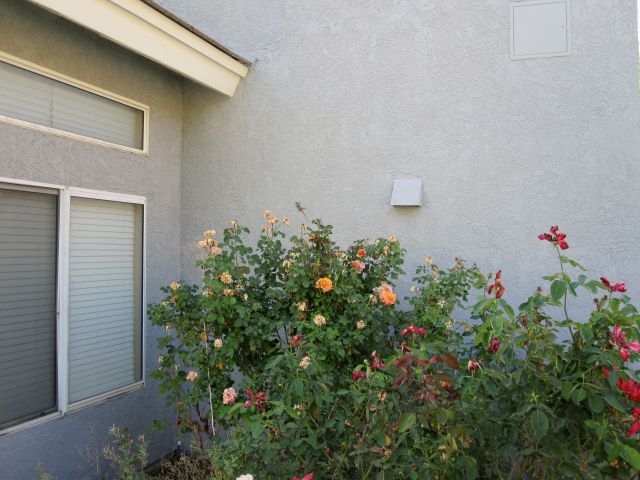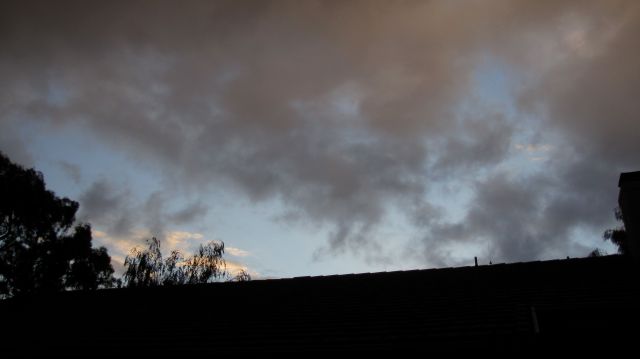I was in the middle of my political awakening, pissed about the wars and worried about the fate of the planet, when I started writing letters to my congressman, representative Howard “Buck” McKeon, the ten-term Republican who has represented the 25th district of California since it was created. I wasn’t old enough to vote, and a lot of important issues weren’t even on my radar, but as far as I was concerned, I was an informed American and I was ready to prove it.
My first letter was worded politely, expressing my concern with military spending and the rising debt. I believed that political figures were inherently reasonable and would listen to an argument from their constituents if it was made well enough. I believed—at the very least—that Buck would offer a defense of his votes. I was sixteen.
At dinner, my dad would try to convince me that global warming was no different from star-bound Mayan prophecies—less credible, even—and I would passionately defend my opinions, believing I could convince him that they came from empathy, a broader perspective, and not a trendy conceit, as members of my generation have been broadly accused. This at a point when I still cared enough to bother. I remember how proud he seemed when I told him I would probably register independent.
Buck responded to my letter by blaming the Democrats, who had retaken the House about 6 months earlier, and even as a 16-year old still trying to figure things out, I found this to be depressingly lame. I was so displeased with this response that I decided to write him again—this time about the environment—and I decided to have some fun with it.
Ever since I’d realized that we were stuck together on this crumbling heap of rock, I’d internalized an existential dread about the future of human society. I think that’s happening to people younger and younger. I was probably about seven when I saw an aerial photo of clearcut rainforest in Brazil, extending endlessly into the horizon. Even still, I made it to my fourteenth birthday harboring a demonized perception of Al Gore from the way my dad talked about him. That phantom vanished with reading the news, and a keystone of my flimsy worldview was removed.
At seventeen, my foundation crumbling, I wrote to Buck, like a vindictive ex-lover, to mock his support for drilling in the Arctic Wildlife Refuge:
Dear Mr. McKeon,
I am alarmed by the recent trend towards environmental concern in the American public. Europe, our socialist neighbor, has long been environmentally proactive … and I fear that the recent trends in America represent an age-old plight, that our country is gradually transforming into a socialist welfare state.
Yeah, I went for the irony. The best part comes in the last paragraph:
These environmentalists may claim that a certain caribou herd could be damaged by drilling operations. This has stalled Congress, but I say that it presents an excellent opportunity for compromise! Drill the region to decrease our reliance on foreign oil, and then—this will even win over the environmentalists—use the affected caribou as new sources of biofuel. We then get the best of both worlds, using the harvested oil to sustain our current economy, while gradually transitioning to a biofuel-centered infrastructure.
Again, thank you for your devotion to the true cause, and standing as a lighthouse in a sea of Californian liberal mutiny.
I’d really taken Jonathan Swift to heart.
I don’t know why this far away issue had struck a chord with me. Buck was also a champion of permitting CEMEX, a Mexican corporation with a dubious environmental record, to mine sand and gravel in our district, a proposal that was fairly unpopular but appeased Buck’s corporate sponsors. Probably I just didn’t know very much about that issue.
When my dad read the letter I’d written, he was furious. It was as if I’d betrayed him. This was no way to address an authority figure, he said. The government could come after you. He forced me to write a different letter, and I can’t remember ever being more angry with him. I wrote a new version, but sent this one anyway.
Presumably it arrived at Buck’s congressional office, where an intern or a piece of software scanned the lines for common phrases and sorted it by category and stance in order to direct the proper response. This same intern or piece of software also presumably noted the opinion in some kind of internal polling system. As goes a political rule of thumb: for every person who cares enough to write a letter, there are ten who felt the same way but couldn’t be bothered.
Like clockwork, a letter arrived at my house addressed from Buck’s office. Inside, a short statement thanking me for my support of his policies.
Ten points for drilling in Alaska.
I turned eighteen three weeks after the 2008 election, and while I couldn’t vote, I had been swept up by the hope and promise of Barack Obama. My dad voted for McCain (“somebody has to,” he said). He tried to argue with me about the ethics of stimulus spending; tried to convince me that Obama’s roots in Chicago politics would undo his plans for bipartisanship. But the economic collapse had taken the wind out of my dad, and my heart just wasn’t in arguing. I’d already said my piece, and he’d just have to deal with the person I’d turned out to be.
In the suburbs, I felt increasingly isolated, from my neighbors and their children who I went to school with, from my teachers, from Scout leaders and church leaders, and from my family. On some level, I knew that I was naive in my political expectations. I knew that expecting anything from Buck was setting myself up for disappointment. But this knowledge was overwhelmed by my want to believe in politics. I needed to weather life in the lonely confines of the suburban desert, and without belief, such life was impossible.
In 2009, Buck cooperated with Senator Barbara Boxer to create a new wilderness area in the San Gabriel mountains. Here was an example of reasonable governance, I thought. This was the moderate I knew had to exist. So I wrote him again. I told him I was proud, I actually thanked him, despite my disagreement with his view on climate change.
And the bastard wrote me back explaining why he was right on climate change, ignoring my thank you and claiming a hotter planet could be a good time for everybody.
And here I thought that I’d moved on from this abusive relationship.
At twenty two, my girlfriend and I worried through three weeks of government shutdown and uncertainty about making the rent without her paycheck.
I no longer lived in the 25th district of California.
But I logged onto Buck’s website anyway, for old time’s sake, and read through some of the spin. It was still pretty lame. In 2012, he appeared in a list of legislators receiving special interest rates from Countrywide Financial. He denied knowledge of the deal. In 2012 he also faced his toughest re-election yet, against Lee Rogers, a Democrat and foot doctor who accused Buck of “becoming symptomatic of the problems in Washington.” Buck had also just turned 75. I almost felt bad for him.
After the Republicans took the House, he was named chairman of the Committee on Armed Services. It was a good fit, since his main campaign contributors were already defense contractors. In 2010, he said something like “a defense budget in decline portends an America in decline.” Our largest spending aside, decreasing spending is now his largest priority.
And in October of 2013, I don’t know what I was expecting, but Buck voted with the majority of House Republicans against a “clean” CR bill, thereby guaranteeing a government shutdown.
So I wrote him again, just a few words this time, asking for his resignation.




